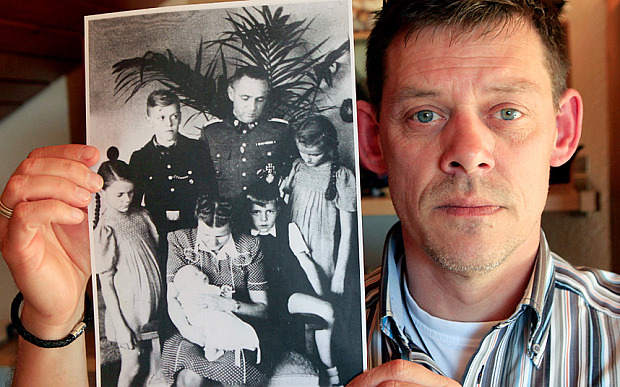Rudolf Hoess, who was commander of Auschwitz concentration camp, was tried during a group of hearings 69 years ago in Nuremburg. His grandson feels that Europe has not learned from the past and is ashamed of what his grandfather did.
He explained that if his grandfather had a grave marker he would spit on it because of the shameful burden Hoess placed on the lives of his family.
During the time that Hoess was in charge of Auschwitz, 1.5 million people were murdered at the camp.
The 69th anniversary of the date that Mr. Hoess’s grandfather began his trial began was on November 20, after which he was hanged.
The younger Mr. Hoess, 49, has denounced his grandfather, the only person in his family to do so.
He explained that when he was younger, he had no idea who the man was that had been executed 20 years before his birth. He grew up being forced to regard his grandfather as a hero and was not allowed to voice a different opinion.
It was in 1922 that Mr. Hoess’s grandfather became a member of the Nazi party, and then part of the SS 12 years later. He was good friends with Heinrich Himmler, SS commander. This friendship, plus Hoess’s experiences in both Sachsenhausen and Dachau, led him to become the Auschwitz commander in 1940.
In this role, Hoess designed and took charge of the gas chambers, as well as began the use of Zyklon B gas, which was used to kill people who could not work, such as older people and children.
When Mr. Hoess was away at boarding school when he was 12, he finally learned the hard way who his grandfather really was. He and his friends had stolen from the kitchen at the school and were caught by security guards. His punishment included working in the garden.
While performing this work, the gardener recognized his name, and began being physically abusive towards the young man. It turned out that the gardener was a survivor of the Auschwitz concentration camp.
A teacher then told him who his grandfather was and what he had done, and the young Mr. Hoess understood the treatment directed at him.
When he confronted his father with this information, his father denied it.
He explains that his father often punished both him and his mother, during which time his mother attempted suicide a number of times. Mr. Hoess himself also tried to kill himself and suffered from a series of health problems, including a stroke and three heart attacks during the 1990’s.
During the mid 1990’s, Mr. Hoess spent some time with the man who had been a driver for his grandfather, who told him about the beautiful villa that he lived in near the concentration camp.
He also told about the punishment that was inflicted upon the prisoners at the villa, that prisoners worked both inside and outside the home, and that Jewish people were not allowed on his land.
The driver also mentioned that a prisoner would sing Mr. Hoess’s grandfather to sleep at night.
He explained to Mr. Hoess how the commander was responsible for the deaths of 20,000 people every day, and that he used the reasoning that he was just doing his job, but would then come home and take care of his family.
When Mr. Hoess was 16, he left home, became a chef, and cut all ties with his family, who now refer to him as a traitor.
One day in 2009, he visited Auschwitz with Thomas Harding, a journalist and writer from Israel.
Mr. Hoess was anxious before the visit, but felt he needed to see the camp with his own eyes.
When they arrived at the site, Mr. Hoess was amazed at how large the concentration camp was, but he couldn’t bring himself to touch anything.
After the war, commander Hoess attempted to run to South America along with his family, but the British captured him. He was tried and put to death beside the crematorium at the camp.
Mr. Hoess enjoyed seeing where his grandfather was killed. He explained that it was the best part of his day at Auschwitz. He wondered what was going through his grandfather’s head when he died looking at the area where he had been responsible for the lost lives of so many people.
A jewish woman presented Mr. Hoess with a Star of David which he always wears. He also informally became the grandson of Auschwitz survivor, Eva Mozes Kor, who had been used in terrible experiments by Mengele during the war.
Mr. Hoess currently resides in southwest Germany and talks at 70 schools each year about his grandfather and the Nazis. He is not afraid to voice his feelings, believes that Right parties are no different that the Nazis, and that they exist in Europe to this day. He is sure his grandfather would be involved in these parties if he were still around, The Telegraph reports.
He describes the ideology of these parties as influential to young people but that they have learned by the mistakes made by the Nazi’s. This makes them dangerous because they now influence others more silently and that Jews are no longer the only target.
Overall, he feels that the world has not learned from the past.
